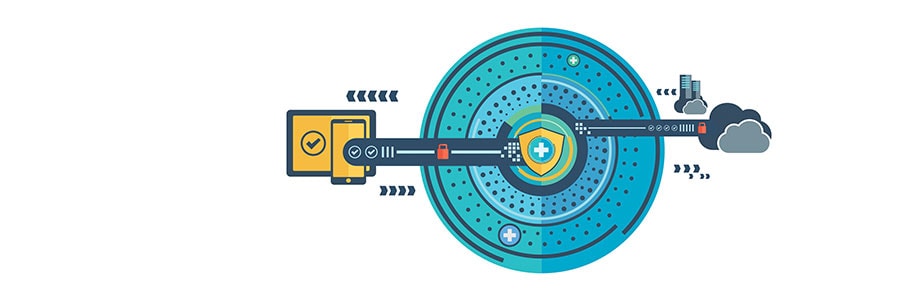Working from home is becoming an increasingly popular option for employees around the world. While this flexible work arrangement can be a great perk for employees, it also comes with its own set of security risks. Follow these cybersecurity tips so you can protect yourself, your personal information, and your company's data while telecommuting.
Working remotely? Follow these cybersecurity tips
Why you need a VPN and how to choose the right one

Today, just installing anti-malware software and a firewall on your computer isn’t enough to keep you safe as you use the internet. Nowadays, a hacker can intercept messages sent to and from your computer and steal the data they contain. This is why you need a virtual private network (VPN).
What is a VPN?
A VPN creates a secure tunnel between your device and the websites you visit, protecting you from hackers looking to intercept your data.
The hows of watering hole attack prevention

There are millions of malware in existence, with new ones being developed by the minute. This is terrible news for anyone who stores personal information online — which is basically everyone in the world today. Learn how you can avoid being a victim of a watering hole attack, one of the most common ways cybercriminals introduce malware into networks.
Here’s why you need a VPN and how to choose one

Installing antivirus software and using strong passwords are no longer considered the bare minimum in cybersecurity. With your online activities transparent to internet service providers, third parties, and hackers alike, it’s important to keep your information secure and private by using a virtual private network (VPN). Here’s why.
Cybersecurity tips for working remotely
Protect your network from watering hole attacks

With evil elements continuously developing novel ways to infiltrate networks and steal user data, it is more crucial than ever to stay one step ahead of the curve. Protect yourself from cybercriminals by learning more about their methods. Here are some tips to deal with the threat of watering hole attacks:
What are watering hole attacks?
Watering hole attacks are used to distribute malware onto victims’ computers in a similar way phishing activities are conducted.
Benefits of using a VPN

While using a virtual private network or VPN isn’t a silver bullet to online privacy threats, it still offers crucial security benefits, especially if any part of your day involves using unsecured channels such as public Wi-Fi. Given its importance, how do you pick the right one and what factors do you need to consider?
What is a VPN?
The best way to describe a VPN is as a secure tunnel between your device and destinations you visit on the internet.
Safety tips for watering hole attacks
What you need to know about VPNs
Watch out for the huge KRACK in WiFi security!

A fundamental flaw with WiFi networks has recently been discovered by two security researchers. According to their reports, the KRACK vulnerability renders advanced encryption protocols useless and affects nearly every wireless device. Read on to find out more about KRACK hacks and how you can defend against them.




